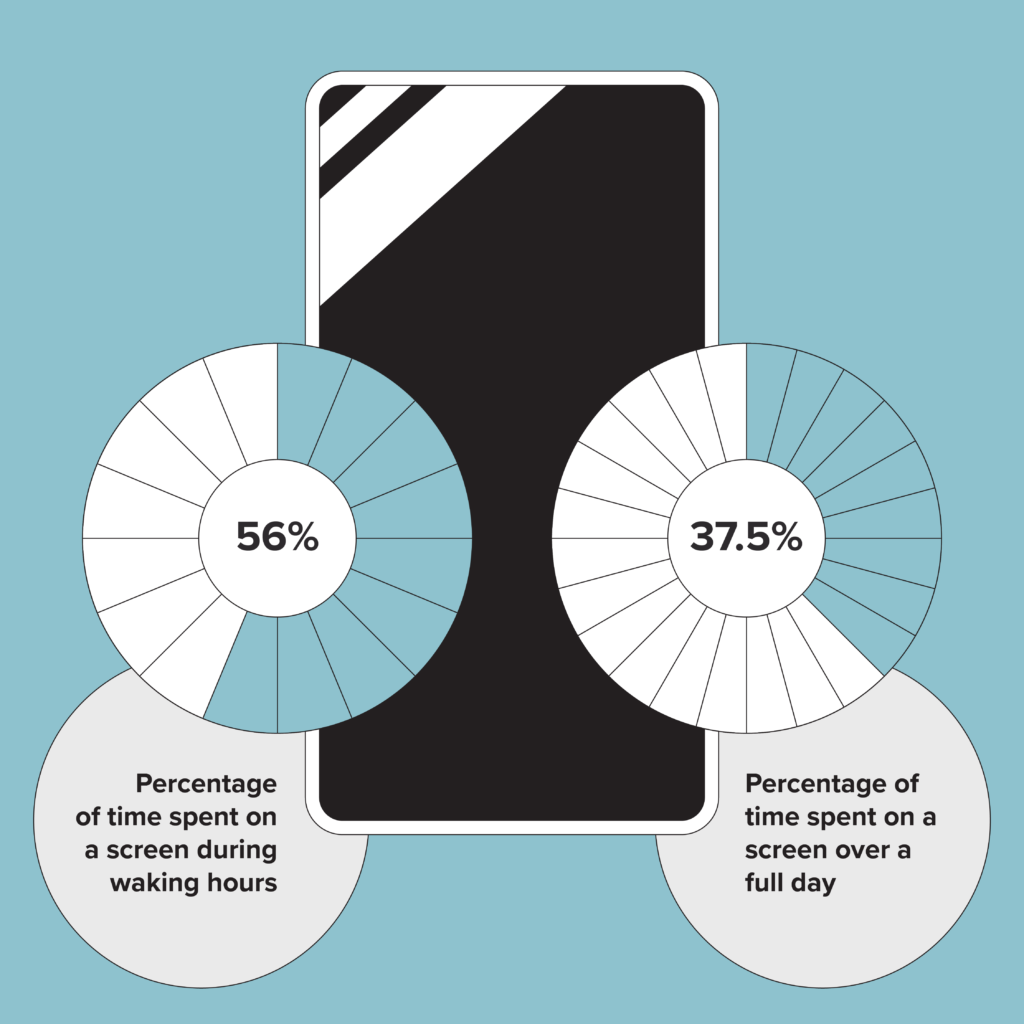3 Tips for When You’re Trying to Get Your Teen off their Phone
This post was updated in 2022 with information from this American Academy of Child & Adolescent Psychiatry article.
Did you know that the average teen spends roughly nine hours a day on their phone? That is more than one-third of a 24-hour day. So, if teens are getting the recommended eight hours of sleep per night, that means they’re spending more than half of their waking day on a device. While this stat likely doesn’t come as much of a surprise, it can be increasingly difficult for parents to navigate the tricky landscape of today’s tech-infused world. What complicates things further is that many parents find it hard to keep off their own phones, so it can seem hypocritical when they are trying to enforce limits for their teens around a behavior they are also partaking in.
But, as the American Academy of Child & Adolescent Psychiatry notes, too much screen time can have negative implications, so it’s critical to consider how to better manage your own screen time and how to help your teen better manage theirs.

Below are a few tips that can help you set healthy screen time expectations with your teen.
Always explain the “why” behind restrictions. “Because I said so.” We’ve all said it and we all remember it well from when our parents said it to us. Teens hate to hear this phrase because (on top of not being able to do what they want), they’re unable to see the reasoning behind it, so they think you’re just “being unfair.” When you explain to a teen that excessive phone use is affecting their health, their social skills, and their ability to concentrate on schoolwork it will start to paint the picture for them that their choices now could affect their future. Sure, they may be mad in the moment, but by arming them with this knowledge, you’re opening the door for them to put down the phone of their own volition.
Admit your own downfalls. Do you also have the temptation to check your phone a little too often? Tell your teen this – let them know that this is an issue that everyone in the modern world deals with, and how a part of maturity is recognizing when you need to set aside distractions and focus on more important things. You can also try following the same rules you set for them – if you have set “no phone zones,” that means you, too. The quickest way for a teen to not listen to your advice is when they think you’re being hypocritical.
Encourage them to read actual books. The landscape has changed. Many people enjoy reading and getting their news on their devices, but the fact of the matter is that most of what teens are reading online isn’t full-length books or insightful articles. By helping teens see the joy in reading actual books, they may opt to do that each night instead of endless scrolling through social media on their phone.
For even more tips, you can read the full American Academy of Child & Adolescent Psychiatry article here.
Take Action
Increased awareness can only mean increased prevention. Join us in the fight against teen cough medicine abuse by exploring and sharing our free resources.
